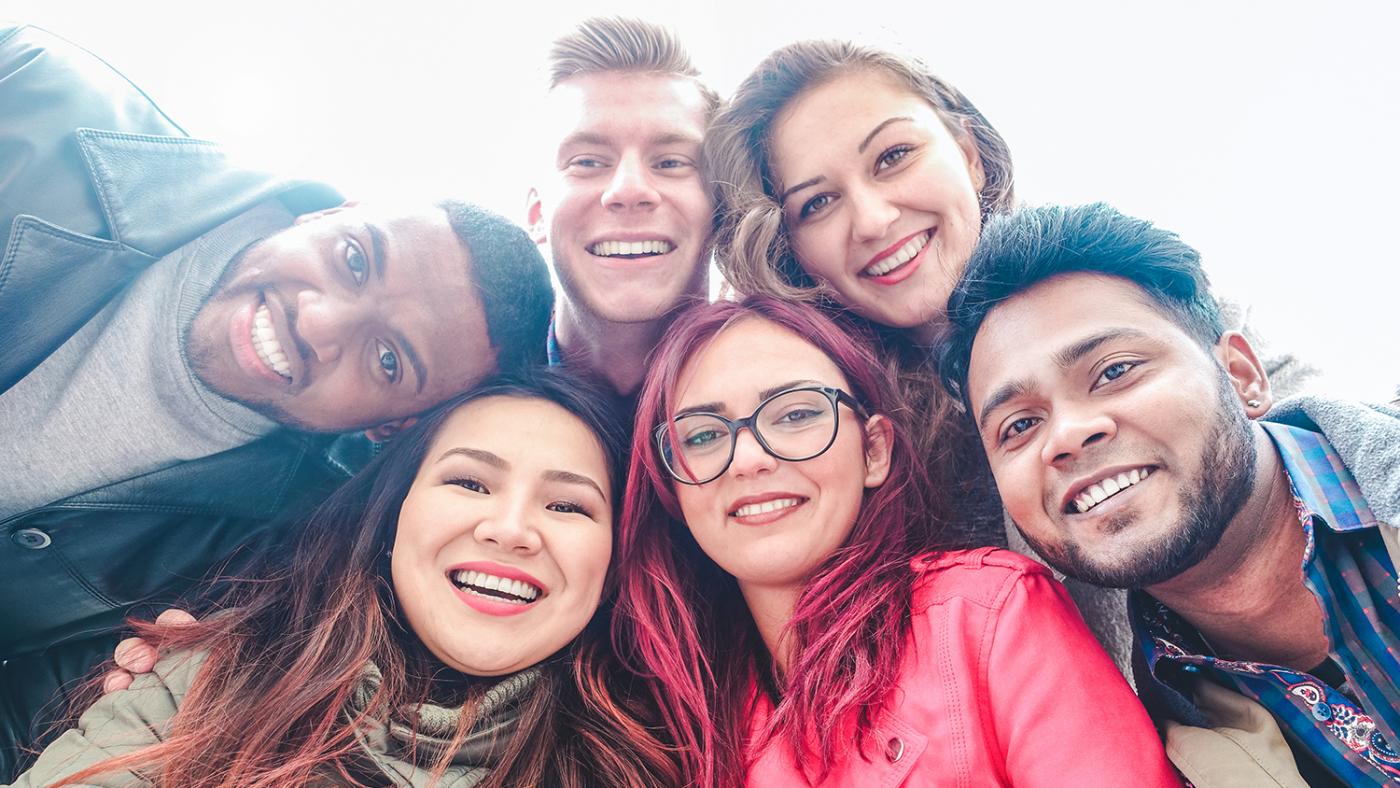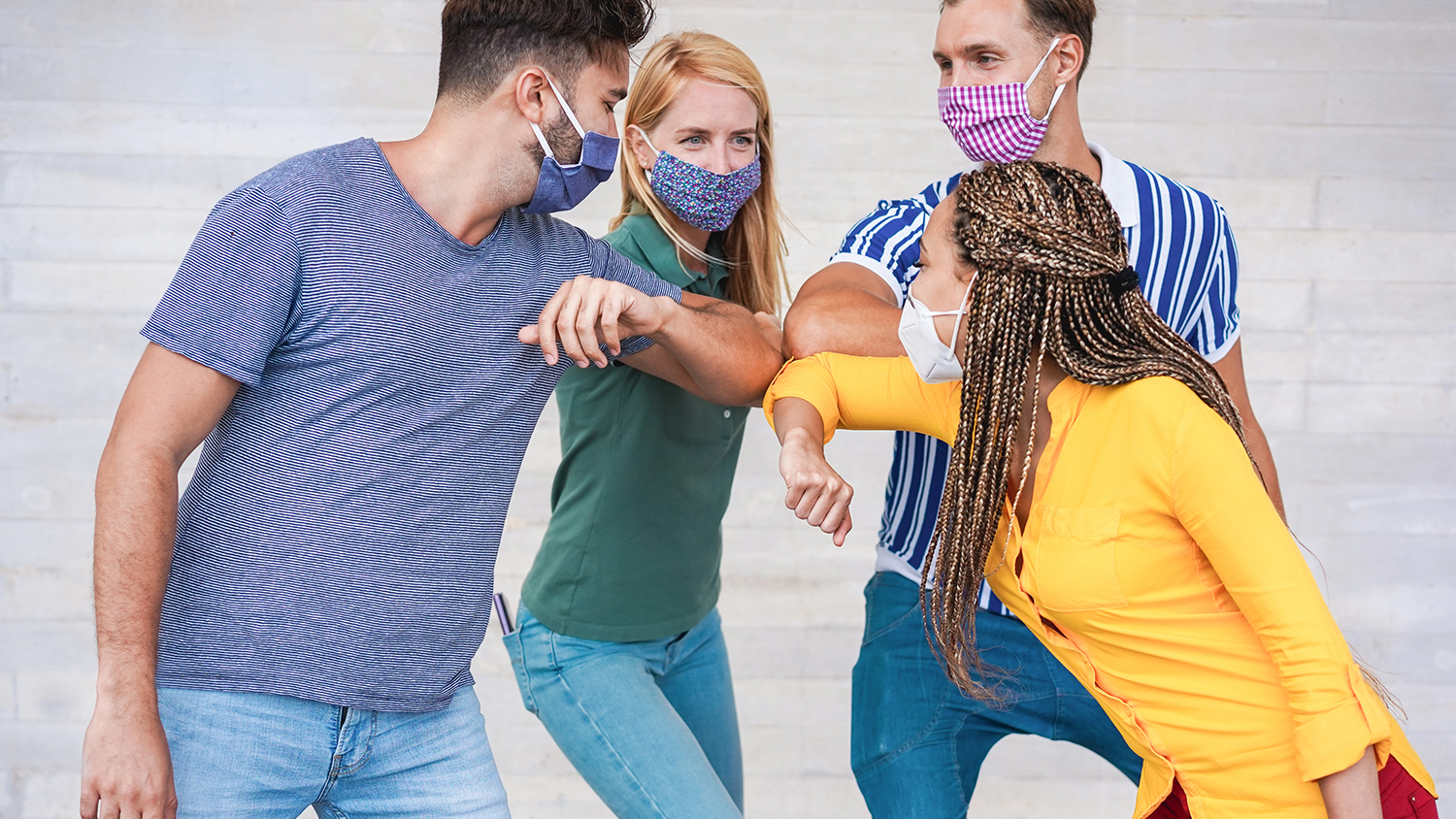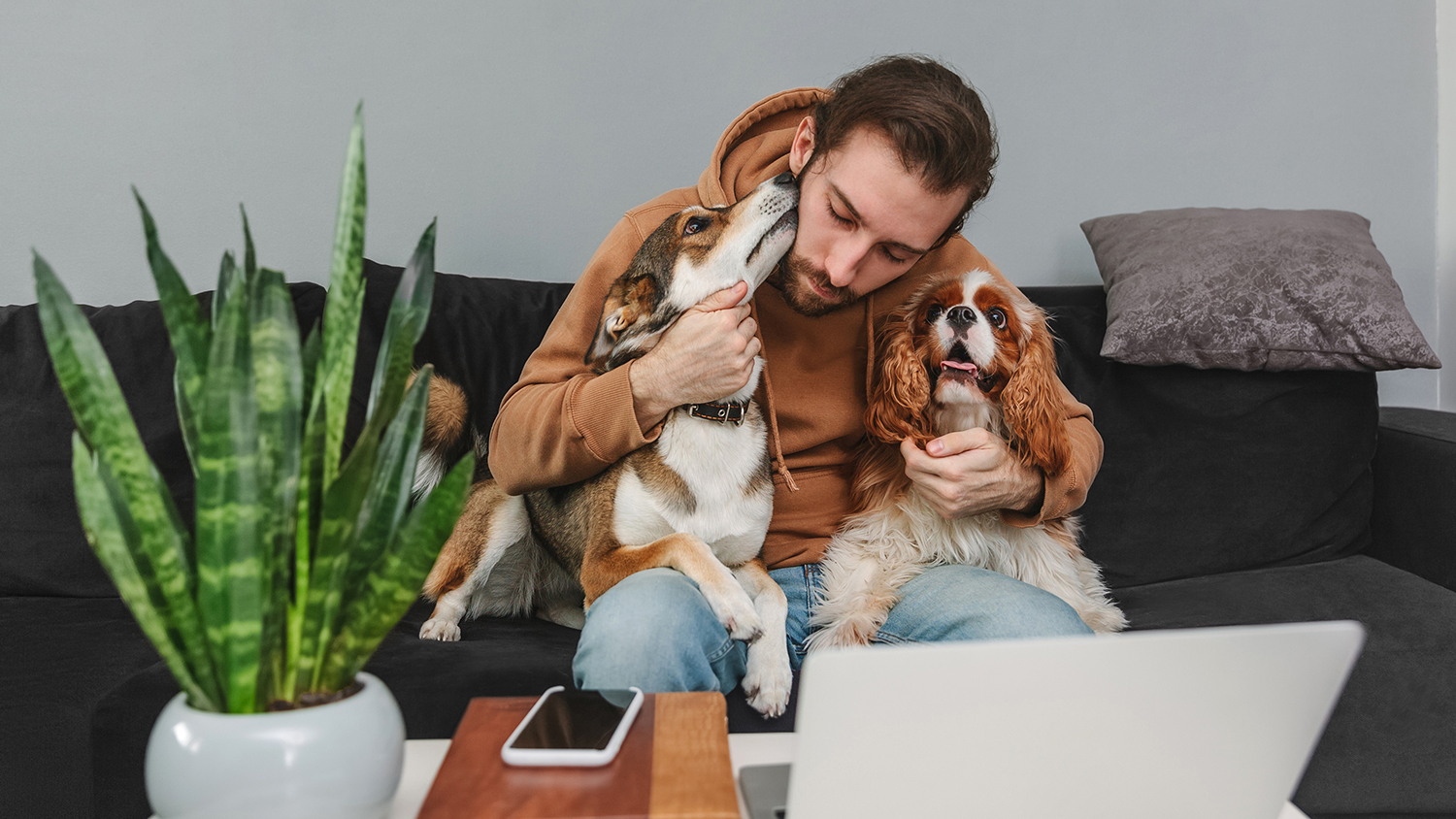Hugs are of vital importance for students

Think about the last time you spent an afternoon with your friends. Was it in a park, or on the balcony of your student house, maybe at a festival? These memories probably put a smile on your face. After all, that’s exactly what friends do to us: they bring us joy, which increases our quality of life. Humans are social animals, which makes contact with friends and family just as basic a need as water and oxygen.
Your social life (or the lack thereof) has a direct impact on your wellbeing, even more so if you’re a student. Students surround themselves with a wide variety of people, including their classmates, teammates if they practice any sports, that fun hook-up. Well, at least that’s what they used to do before the Covid-19 pandemic came along, wreaking havoc and restricting their social lives. In a poll I posted to Instagram, in which I asked students what they’re worried about the most, 24 percent (out of 72 participants) mentioned loneliness and isolation. What consequences does this have on their mental health? What happens when you haven’t hugged your best friend in weeks? Is a "corona buddy" a good idea?

Three kinds of friendship
“Nothing in life is more necessary than friendship”, said Greek philosopher Aristotle, who classified friendships into three types: those based on utility, those based on pleasure, and those based on mutual admiration. To him, only the last category deserves the label of "true friendship".
He calls the first two types "friendships of convenience", as people are friends for certain occasions only. That's the colleague you share your sorrows with during coffee breaks, but you never see them outside of work. Or that one friend from when you were young, who you only see at Christmas.
Although you might not perceive those people as actual friends, these friendships are crucial for your social development as they give you the opportunity to get acquainted with different points of view and opinions. They make you feel connected to something bigger: society. But what if there aren’t any occasions to make or meet these "friends of convenience", and you only get to see your BFF (Best Friend Forever) from a distance?
Corona bubble
“We’re all living in our own bubbles and the coronavirus pandemic makes them even smaller and more limited", explains Beate Volker, UU professor of Urban Sociology, who conducts research on friendship networks. "Although you’ll keep seeing your best friends, the weaker friendships will fade away.” But that isn't the end of the world. “That’s the beauty of friendships: they’re forgiving, selfless, and dynamic. They don’t have a clear ending, like most romantic relationships. Instead, you can find each other again after a period of not being in touch, or even after fights.” So, you’re "just friends" and that’s it.
What's more, the current measures could even strengthen your friendships because you spend more quality time with each other. People see each other one-on-one a lot more now, which means they have more time to give their undivided attention to each other. So, if you needed an excuse to go on a coffee date with your friend, there you go. The only thing is that you'll have to keep 1.5 metre (6 feet) apart at all times.
The importance of hugging
And that's what's tricky. Although that can be nice in some situations (such as the mandatory Dutch tradition of kissing everyone on the cheek three times on one’s birthday), the social distancing measure keeps people from hugging each other. That quick embrace to say hello, or that arm around your shoulders when you’re feeling down: that's precisely what many people miss. In Dutch, there's even a slang to define this need: skin hunger (huidhonger).
But skin hunger isn't the same thing as loneliness. You can have a nice social life and still miss touching and being touched. Experimental psychologist Anouk Keizer explains: “There are two kinds of touch: sensing and feeling. Sensing describes functional touch, like bumping into something. Feeling describes touching within a social context, which has a positive effect on our bodies. It influences the way we experience pain, it connects people, and lowers our stress levels.”
Hormone cocktail
When we touch or hug each other, a real cocktail of hormones is released in our blood stream, explains Leiden-based biopsychologist Peter Bos. One of them is oxytocin, which isn’t popularly called "the cuddle hormone" for nothing. This hormone directly influences the functionality of serotonin, the "happiness hormone", and also restricts the "stress hormones" cortisol and adrenaline. In sum, more happiness and less stress. Moreover, oxytocin has a positive effect on our metabolism, digestive system, and immune system.
A corona buddy
Our social circle suddenly became a lot smaller in 2020. Evolutionarily speaking, that’s bad news for us. “Humans are social creatures. Although we'd like to think of ourselves as independent, that isn’t really true in practice. We’re not physically strong or self-sufficient, so we rely on others out of necessity. Walking around nature by ourselves has never been a way to makes us function properly, so it’s an illusion to think we can do so now,” states Bos.
Single people and those living alone are struggling the most with the social distancing measures, stressed social scientist Linda Duits on Generation Lockdown, an event organised by Studium Generale. In her plea for the relaxation of social distancing rules for single people, she coined the term ‘corona buddies’, which caused a lot of stir, a change in the law, and then a retraction of it.
But urban sociologist Beate is not a fan of the concept: “A label like that makes a friendship feel like something exclusive, which doesn’t match the principles of friendship.” After all, how do you choose who to include in your bubble?

Experts give advice
Fortunately, there are plenty of alternatives, although they’ll never replace the real deal. If you're like me and you sometimes feel alone in these crazy times we’re living in, here are five pieces of advice from Beate Volker, Anouk Keijzer, and Peter Bos:
Step out of your comfort zone and take the initiative. Send a message, right now, to that one friend you haven’t spoken to in weeks. Have a chat with the person in front of you in line at the supermarket. Ask someone from your study programme to stick around after that online class. Those are all things you can do while following the government's rules.
Next, boost your oxytocin levels by remembering a nice touch, having a self-care day, receiving a compliment, or listening to beautiful music. If none of this helps, “just eat some dark chocolate”, recommends Bos.
Another thing you can do is borrow a friend’s cat or dog for a week, as having an animal around can do wonders against stress. But "a cat doesn’t talk back, of course”, says Anouk Keijzer.
Take up a new hobby or get back to that old hobby you used to have when you were a child (hello, flute!). Beate Volker explains that engaging with a good book or piece of music can be an enriching experience, giving you a boost of energy and inspiration.
Last but not least, take this pandemic as an opportunity for self-reflection. Ask yourself what your needs are in terms of touch and social contact. What did you miss and what didn’t you miss? How will you fit that into your life once certain activities are allowed again?
Eline Kraaijenvanger wrote five articles (in Dutch) about studying during the pandemic for Studium Generale Utrecht. In them, she talks to students and scientists about the impact of the coronavirus pandemic on student's mental health, searching for scientific explanations and useful advice.